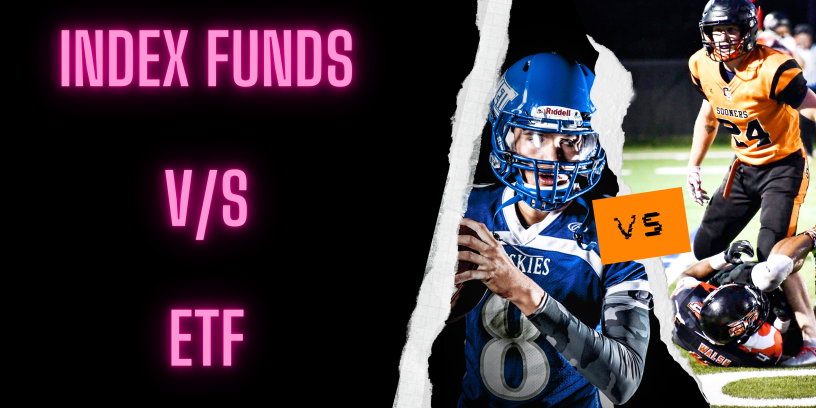Index Fund and Exchange Traded Funds ( ETFs ) are good Instruments for long-term investors, but they have their own pros and cons.
We will discuss Pros and Cons of these two in a phased manner and compare Index fund vs ETF below :
A lot of Indians have turned to Equity Market since the start of the covid-19 pandemic. For most investors looking at simpler solutions, passive funds which by is a copy of the Active Funds Managed by Fund Managers and offer the level of simplicity and returns which can match that of an Index.
Passive investing is the most basic form of putting one’s money in mutual funds (MFs) and the purpose of this style of investment is to mirror the index and not beat it. Common ways to invest passively in the equity market are 1. either opt for an index fund or 2. an index exchange-traded fund (ETF). Both essentially mirror an index.
It’s only in the past five years that asset management companies (AMCs) have started focusing on passive funds.
People are also becoming price conscious about how much they pay for mutual funds and have started looking at expense ratios, which they usually didn’t use to do two-three years ago. The performance of passive funds are now at par with active funds.
In passive investing, investors don’t have to choose from over 5,000 funds that are available in the market.
According to experts, both index funds and ETFs are good for those looking to hold their investments for the long term. However, these instruments come with their own set of pros and cons. Let’s look at them in detail.
Pros :
1. An index fund works like an MF, in which a fund manager creates a portfolio that replicates an index, which could be the Sensex or Nifty. There are over 30 funds available in the market on Sensex and Nifty indices alone. The only problem with index funds is that you have to buy them only at the end of the day’s net asset value (NAV).
2. ETFs remove this limitation, as they can be bought at any point during the market trading hours. Moreover, ETFs have to be listed on stock exchanges.
3. There are various kinds of ETFs available in India, right from gold ETFs to Nifty and Sensex. There are also CPSE and Bharat 22 ETFs, which give exposure to public sector companies.
4. For both index funds and ETFs, you should pick a fund with minimum tracking error. Tracking error is the divergence of an index fund from the index it is seeking to replicate. More Tracking Error, the more your Fund will be returning less than Index.
5. While most of the ETFs charge about 0.1-0.5%, index funds have expenses of about 0.75-1.5%.
6. ETFs score over index funds in many ways. You can buy or sell ETFs at any time on an exchange during trading hours, and you can take advantage of your entry or exit based on your analysis or perception of the markets or the index you are tracking. Moreover, ETFs have a low expense ratio than mutual funds and the tracking error is also lower. This makes net returns higher in the case of ETFs.
Cons :
1. One of the main reasons behind errors in index funds is the delay in holding adjustments between the tracking index and the fund.
2. Investing in Both ETFs requires trading and demat accounts and these costs add to the total cost of ownership, along with the expense ratio.
3. One major downside of ETFs in India is the lack of liquidity in market .Since its traded in Market and with less liquidity tend to loose the profit. Other issue with ETFs in India is efficiency. ETFs in India are not very efficient, so investors end up paying about 0.5-1% more than what they should, because of the lack of liquidity on the exchanges, but this will not be a problem in five years time
Conclusion:
Experts say that first-time investors should not buy ETFs on an exchange.
As a retail investor, people tend more towards looking at the expense ratio and decide which instrument is cheaper, but ETFs have multiple problems that an index fund doesn’t have. Generally, ETFs are not available at the market rate and the spread is sometimes the problem, which can eat into much more than what the expense ratio of an index will.
When investing in ETFs, retail investors don’t generally look at brokerage charges. Considering buy-sell brokerage plus the spread, investors might end up paying much more in ETFs than they would have paid for an index.
Low-cost passive investments such as index funds and ETFs are good long-term choices, but make sure that you are getting the advantages of low-cost, efficient transactions in the instrument that you have chosen.
At EquityGyan.in, you can invest in the best mutual funds , ETF and other instruments online by taking assistance from our team at the Investment Planning Desk. You may ask your fund-related queries from our team to make an adequate decision in terms of fund selection for your portfolio.

